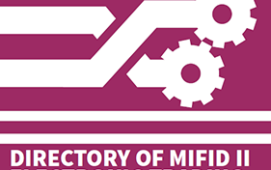
In anticipation of the transition to a T+1 settlement cycle in the US, the Depository Trust & Clearing Corporation (DTCC) has released a new report, “Hitting 90% Affirmation by 9:00 PM ET on Trade Date: The Key to T+1 Success”, which highlights the importance of automating post-trade processes to achieve success in the upcoming T+1 settlement environment.
Under the existing T+2 settlement cycle, approximately 90% of all trades are affirmed by the current cut-off time of 11:30 AM ET on T+1. Achieving existing levels of settlement efficiency under the new regime necessitates the affirmation of at least 90% of all trades by 9:00 PM ET on the trade date. In order to allow a two-hour window for confirmation and affirmation, this implies that trade allocations should be completed by 7:00 PM ET on trade date. As of December 2023, only 69% of all trades were affirmed by 9:00 PM ET on trade date.
Val Wotton, Managing Director and General Manager of DTCC Institutional Trade Processing, commented: “We are pleased to present the industry with this report, outlining affirmation cut-off times and providing recommendations so firms can be best positioned to meet T+1 settlement cycle requirements. As market participants prepare for the compressed timeframe, DTCC continues to work with and support the industry to ensure a smooth transition to the accelerated settlement cycle.”
The affirmation process in US institutional trading involves brokers confirming trades using TradeSuite ID, an automation tool for electronic trade detail distribution. Investment managers or their agents, such as custodians or prime brokers, then affirm these trade details. Subsequently, the central matching service provider (CMSP) sends the affirmed confirmation to the depository for settlement. Clearing agents play a role in checking positions and credit for the parties involved before settling the trade.
The report outlines various strategies for achieving higher affirmation rates for trades settled bilaterally through DTC, including: understanding the best practices for using a TradeSuite ID omnibus account number; encouraging investment managers to obtain their own TradeSuite ID number; and considering the advantages and disadvantages of various affirmation methods, such as custodian affirmations, self-affirming, or using a central matching solution with auto affirmation capabilities like DTCC CTM’s Match to Instruct (M2i) workflow.
DTCC emphasises in the report that shortening the settlement timeline from T+2 to T+1 will improve the markets by reducing risk, lowering costs and improving efficiency by having shares available for trading again sooner.
Subscribe to our newsletter




